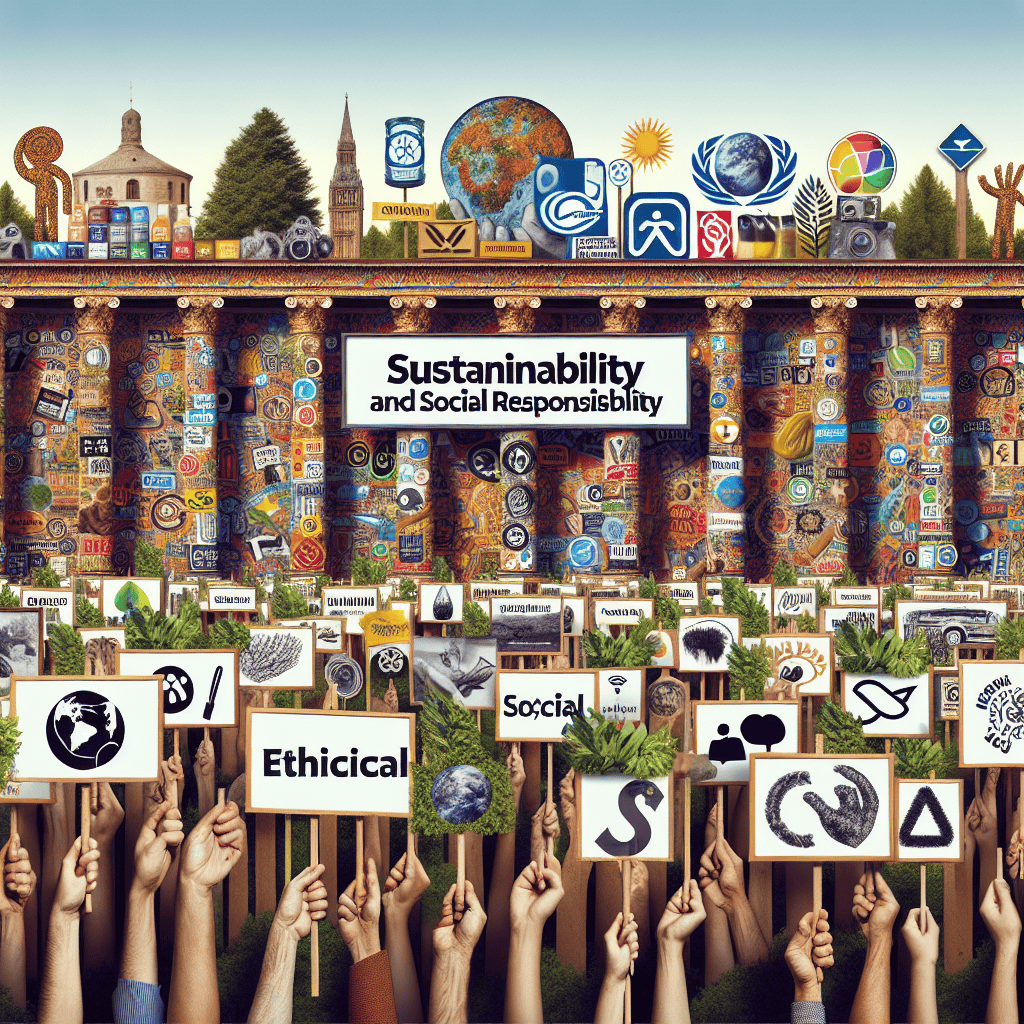In today’s fast-paced and content-saturated market, consumers are more discerning than ever before. No longer satisfied with just products that meet their needs, they seek brands that align with their values. Sustainability and social responsibility have become paramount in shaping consumer preferences and influencing purchasing decisions. This article explores how brands are masterfully weaving ethical messaging into their advertising campaigns, promoting not just products but the larger causes they stand for.
The Rising Importance of Sustainability in Marketing
The shift toward sustainability is not merely a trend; it’s a fundamental change in consumer behavior. According to a recent survey, over 70% of consumers considered a brand’s sustainability practices before making a purchase. This growing consciousness has pushed brands to evaluate their operations, supply chains, and overall corporate ethos.
Brands are beginning to recognize that sustainability is not just a buzzword but a necessary strategy for long-term viability. Integrating sustainable practices into their operations—from sourcing ethical materials to reducing carbon footprints—allows them to appeal to eco-conscious consumers. More importantly, effectively communicating these efforts through advertising is essential for garnering trust and loyalty.
Crafting Ethical Messaging in Advertising
Brands that want to communicate their commitment to sustainability and social responsibility must ensure that their messaging resonates with authenticity. Here are several strategies they employ:
1. Transparency and Authenticity
Consumers are savvy; they can spot insincerity. Brands that succeed in ethical advertising are those that communicate transparently. This transparency can manifest in multiple ways, such as sharing the story behind the product, detailing the sustainable practices that are in place, or showcasing the challenges faced in the journey toward sustainability.
For instance, Patagonia preaches transparency. Its ads often highlight the environmental impact of fast fashion while offering a clear narrative of its commitment to responsible sourcing and manufacturing.
2. Storytelling that Connects
Storytelling plays a crucial role in creating emotional connections with consumers. Brands often create narratives that put human experiences at the forefront. By focusing on the lives positively impacted by their sustainable practices, they foster a sense of community and shared values.
Examples abound: Nike’s “Move to Zero” campaign emphasizes the stories of individuals and communities taking charge of their environmental impact, framing the brand as a partner in their journey toward sustainability.
3. Collaborations with Nonprofits
Strategic partnerships with nonprofit organizations can lend credibility to a brand’s commitment to social responsibility. Collaborations can help amplify messages and reach broader audiences. Many brands allocate portions of their sales to nonprofit initiatives, using advertising to highlight these partnerships.
For example, TOMS Shoes has built an entire brand identity around its One for One model, where for every product sold, a pair of shoes is donated to someone in need. Through their advertising campaigns, TOMS emphasizes the tangible impact of purchasing from their brand.
4. Leveraging Social Media for Engagement
Social media platforms are pivotal in the modern advertising landscape. Brands are harnessing the power of social media to engage with users over sustainability. Through interactive posts, live sessions, and user-generated content, brands encourage followers to share their sustainability journeys.
With campaigns such as #ZeroWasteChallenge, companies like Unilever invite consumers to join in on sustainability efforts, fostering a sense of community while directly engaging their audience
Case Studies of Effective Ethical Campaigns
The efficacy of ethical messaging can be seen through several groundbreaking campaigns:
1. Coca-Cola’s World Without Waste Initiative
Coca-Cola launched the “World Without Waste” initiative, committing to making all its packaging recyclable by 2025. The campaign is not only a commitment but a deep dive into the brand’s vision of a sustainable future. Through ads that highlight recycling education and community clean-up efforts, Coca-Cola connects its mission to the everyday consumer.
2. Ben & Jerry’s Activism
Ben & Jerry’s has long been known for its activism in social justice and environmental issues. Its advertising directly incorporates messages around climate justice, fair trade, and racial equity. The brand uses social media to amplify these messages and engages consumers in meaningful dialogues on these critical issues.
Challenges and Opportunities
While brands are eager to adopt more ethical advertising practices, challenges abound. The saturation of ‘greenwashing’—the practice of conveying a false impression of environmental responsibility—has led to consumer skepticism. Brands risk backlash if their messaging does not match their actions.
However, these challenges present opportunities for growth. The demand for genuine sustainability efforts is rising, leading to innovations in product development, marketing strategies, and customer engagement. Brands willing to invest in authentic sustainable practices will not only thrive but set industry standards.
Conclusion: The Future of Ethical Advertising
In a world where consumers are increasingly aware and passionate about the impact of their choices, brands cannot afford to ignore sustainability and social responsibility. Ethical messaging is no longer optional; it is essential. Brands that effectively weave these values into their advertising campaigns can create lasting impressions, foster customer loyalty, and drive meaningful change in society.
As the landscape of advertising continues to evolve, the integration of sustainability and social responsibility will serve as both a competitive advantage and a moral imperative. Brands embracing this shift are not only contributing to a better world—they are paving the path to their own sustainable success.
At USA Marketing Pros, we specialize in elevating your online presence with superior web design, SEO, and digital marketing solutions. Based in Arlington, VA, we proudly serve businesses across Northern Virginia and the broader Washington, DC area. Get in touch with us today to see how we can help your business grow at (202) 888-5895 or visit us at 701 12th St S, Arlington, VA 22202.
Searching for Google, Facebook, or Instagram PPC Advertising Management? View our top-rated PPC Advertising Services
Check out all our Digital Marketing Services
Reserve a Advertising Strategy Call




0 Comments